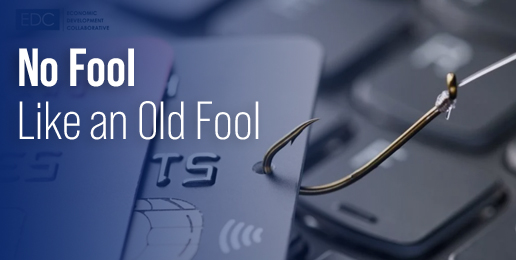
It seems appropriate today to consider the nature of a “fool.” After all, it is “April Fools Day.”
We view the day as an annual game of mostly harmless, practical jokes played on others. Any potential embarrassment is supposed to be softened when the prankster states, “April Fools!!”
Truth is, most people I know don’t like being fooled. Especially the folk who have been around the block for a while. Thus the phrase,
“There’s no fool like an old fool.”
The obvious meaning is that the more seasoned among us are expected to know better than to be suckered into outrageously foolish things.
The origin of this life wisdom is found in a comprehensive collection of English proverbs. This particular one is from John Heywood’s 1546 glossary, A dialogue containing the nomber in effect of all proverbes in the englishe tongue:
“But there is no foole to the olde foole, folke saie.”
(My MacBook was very uncomfortable with the spelling of that last sentence.)
All of us seasoned citizens can take a good practical joke or two. It’s part of the fun of life. And we enjoy pulling an innocent fast one on grandkids once in a while.
Where it stops being funny and harmless is when it comes to taking people’s money. The National Council on Aging (NCOA) offers advice on a number of topics for seniors. One article particularly worth noting is titled,“The Top 5 Financial Scams Targeting Older Adults.”
In setting the stage, the NCOA recognizes that financial scams are everywhere and no one is immune. Older adults are often unable to recoup their losses. Looking at the broad numbers, people age 60 and over lost a combined $3.4 billion to fraud in 2023 worldwide. This means that over 100,000 seniors were robbed of savings and financial security.
Why target seniors? Those with an intent to defraud or con believe the older adult population has ample finances. But let’s not fool ourselves. Low income seniors are also at risk for the fraudsters.
Criminals also consider the elderly “low-risk” since many people are embarrassed to report financial scams. Police admit these thieves can be tough to prosecute. Older adults learn the ability to recover their losses is limited.
What are the top five deceptions for which seniors are at risk?
- The grandparent scam. i.e., fake grandchildren ask for help with car repairs, late rent, a medical emergency, or even to post bond. They pretend to be in distress. They may even beg the grandparent not to tell anyone.
- Financial services scam. Scammers call, text, or send email messages that look and sound perfectly legitimate. They may claim that a checking or savings account has been compromised and ask for personal information, such as a password or Social Security number, to “secure” it. They may threaten arrest for unpaid bills—often asking for immediate payment.
- Tech support scams. These scams top the list. Typically, a person’s computer or phone screen will freeze or go blank. A pop-up message will appear with a phone number to dial for help. When the user calls it, the scammer asks permission to log on to the device remotely. This fake “tech support” representative also may demand a fee to repair the “issue.”
- Government impersonation scams. In government impersonation scams (also known as government imposter scams), callers pretend to be from the Internal Revenue Service (IRS), Social Security Administration, or Medicare. They threaten to arrest or deport the person who answers the phone if they don’t pay their “unpaid taxes.” Or, they may threaten to cut off Social Security or Medicare benefits unless the person provides personal details.
- Romance scams. Online dating con artists create fake social media profiles and use them to gain trust and steal money. They may ask victims to pay for visas, medical emergencies, and travel expenses to come to the U.S. Romance scams can drag out for a long time. The FTC reports that in 2023 alone, more than 64,000 people reported a romance scam, with losses totaling $1.1 billion.
The Bible says of evil pranksters,
“Like a madman who throws firebrands, arrows, and death is the man who deceives his neighbor and says, ‘I am only joking!’” (Proverbs 26:18-19, ESV)
And Proverbs 11:3 instructs,
“The integrity of the upright guides them, but the crookedness of the treacherous destroys them.”
Seniors must truly be vigilant—lest the fraudsters laugh and say,
“There’s no fool like an old fool.”





















